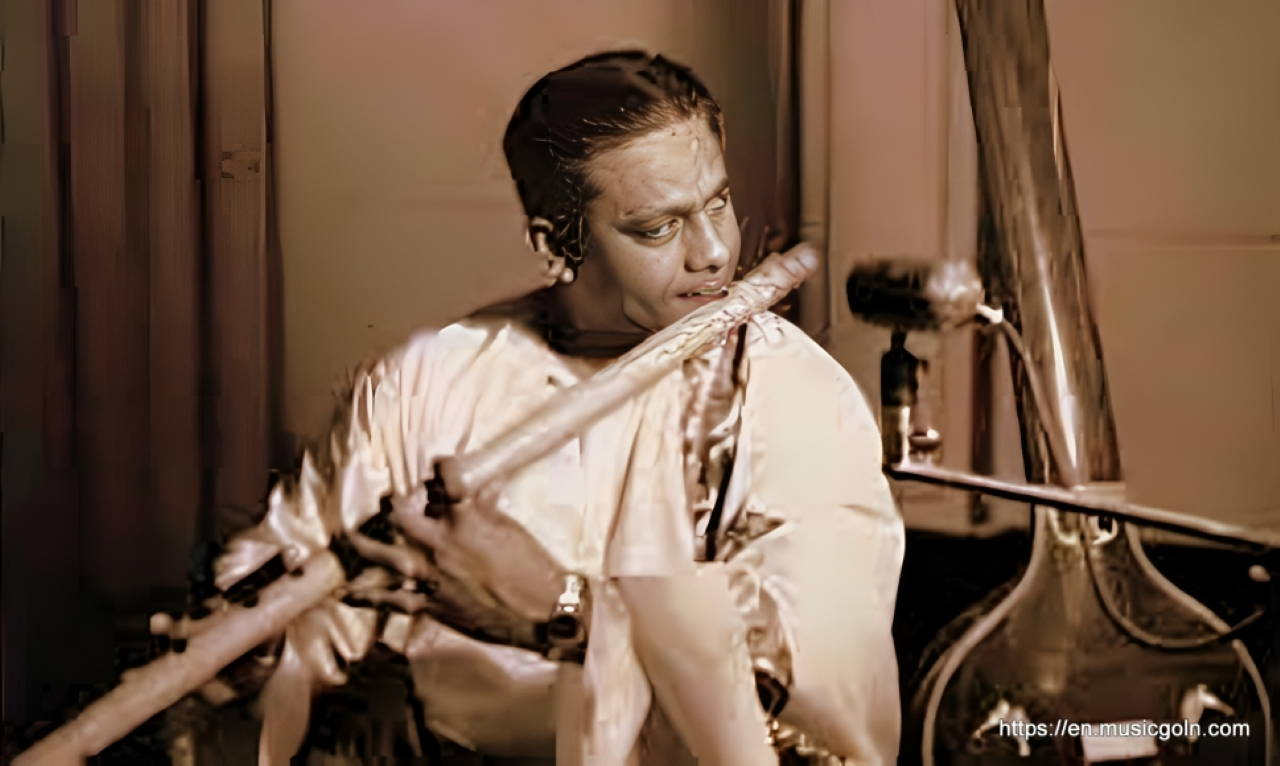Pandit Pannalal Ghosh (1911–1960) was a visionary flautist who revolutionized Hindustani classical music by elevating the bansuri (bamboo flute) from a folk and devotional instrument to a sophisticated medium for classical concert performance. His contributions have left an indelible mark on Indian music, and he is widely regarded as the father of the modern classical bansuri.

Early Life and Musical Influences
Pannalal Ghosh was born as Amal Jyoti Ghosh on July 31, 1911, in Barisal, now in Bangladesh. He was drawn to music from an early age, inspired by the devotional and folk traditions around him. His father was a sitarist, and his early musical experiences included exposure to Bhajans, Baul songs, and Kirtans.
By his teens, he had become deeply interested in the bamboo flute, experimenting with various lengths and tunings. At the time, the bansuri was considered a light, folk-oriented instrument, used mostly in rural traditions and for accompanying dance or drama.
Transformation of the Bansuri
One of Pandit Ghosh’s most profound contributions was transforming the bansuri into a viable instrument for Hindustani classical music. This required overcoming significant limitations:
-
The traditional bansuri was too short to cover the full range required in classical performance.
-
It lacked the depth and resonance necessary for alap and meend (glides).
-
It could not execute intricate taans or complex gamakas easily.
Pannalal Ghosh redesigned the bansuri, extending its length to about 32 inches and choosing Eb or E-natural as the base scale to balance tonal depth and playability. He added the 7th hole (earlier bansuris had only six), enhancing its range to two and a half octaves, a major leap in expressive capability.
Gharana Training and Musical Style
He studied under several great masters of the time, including:
-
Ustad Allauddin Khan, the founder of the Maihar Gharana, who also taught legends like Ravi Shankar and Ali Akbar Khan.
-
Exposure to the Dhrupad-Dhamar traditions, which influenced the gravity and austerity of his playing.
-
Knowledge of vocal forms and rhythmic mastery that informed his phrasing.
Pannalal Ghosh’s style was known for its deep, meditative alap, brilliant taans, and emotive expressions. He brought gayaki ang (vocal style) to the flute, enabling it to match the expressive subtlety of the human voice.
Compositions and Innovations
Apart from performance, Pandit Ghosh was a prolific composer and innovator:
-
He composed new ragas like Deepawali, Chandra Kauns, Basant Mukhari, and Hem Bihag.
-
He created techniques to articulate meend, murki, khatka, and gamak on the bansuri.
-
He introduced multi-flute ensembles and used flutes of various sizes to cover different octaves, laying the foundation for bansuri orchestration.
Film and Broadcasting Career
He also worked extensively in the film industry during the 1930s and 1940s:
-
Composed music for early Hindi films, including “Aandhiyan” and “Doctor”.
-
Worked with the Indian People’s Theatre Association (IPTA).
-
Was instrumental in establishing classical music programming at All India Radio (AIR) in Mumbai and later in Delhi.
His music for films and plays was rooted in raga but accessible to the masses—bridging classical rigor and popular appeal.
Legacy and Disciples
Pandit Pannalal Ghosh passed away prematurely on April 20, 1960, at the age of 48, but his influence endures.
Some of his prominent disciples and musical inheritors include:
-
V. G. Karnad
-
Devendra Murdeshwar
-
Nityanand Haldipur
-
Raghunath Seth
-
Hariprasad Chaurasia, who would become the most famous torchbearer of his legacy, adapting and expanding Pannalal Ghosh’s techniques to reach global audiences.
Philosophy and Spirituality
Pannalal Ghosh saw music as a path to spiritual elevation. He was influenced by Sri Aurobindo’s Integral Yoga and practiced inner discipline through music. His approach to raga was not just technical, but deeply meditative, rooted in bhava (emotion) and rasa (essence).
Pandit Pannalal Ghosh was much more than a virtuoso flautist. He was a musical architect, technological innovator, composer, and spiritual seeker, whose work paved the way for future generations of bansuri players. His legacy lives on every time the flute sings a note of Yaman, Bageshree, or Marwa on a modern concert stage.
In the words of Hariprasad Chaurasia,
“Whatever we are today, it’s because of Pannalalji. He gave us the wings.”